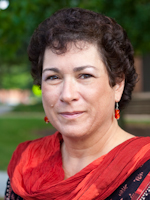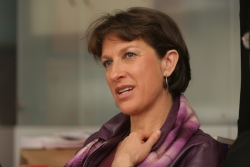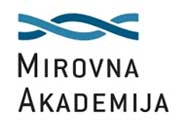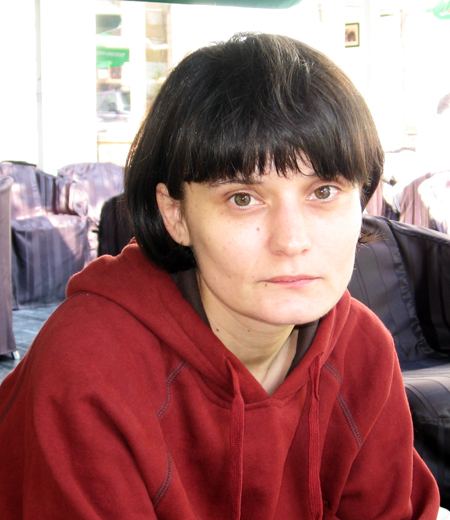 Jayne Docherty
Jayne Docherty
Professor
Biography:
Jayne Seminare Docherty is a professor of conflict studies at the Center for Justice and Peacebuilding at Eastern Mennonite University. She has also taught at George Mason University and Columbia College (South Carolina). Professor Docherty earned her Ph.D. at the Institute for Conflict Analysis and Resolution at George Mason University and she holds an undergraduate degree in religious studies and political science from Brown University. She also studied theology at the University of St. Andrews in Scotland.
Professor Docherty consults with organizations and communities in transition, working with them to harness the positive energy of conflict and minimize its negative effects. Her current area of focus for research, writing and practice is improving the use of negotiation in unstable situations so that the results yield durable but flexible systems for creating long-term and sustainable peace with justice. She has also conducted research – especially action research projects – for nonprofit organizations; consulted on designing, monitoring and evaluating projects and programs; worked with universities on curriculum development; and conducted trainings on conflict analysis, negotiation, and program design.
For the next three years, her practice focus will be on Lebanon and Burma/Myanmar. In Lebanon, she is working in collaboration with The Institute for Peace and Justice Education at Lebanese American University on a multi-year effort to develop and institutionalize a summer peacebuilding training program for young leaders interested in building peace in Lebanon. In Burma/Myanmar, she is working as a consultant and trainer with groups that are supporting the transition from military to civilian rule with the goal of promoting sustainable peace with justice for the country.
Professor Docherty is a member of the Board of Directors for the Peace Appeal Foundation an organization that “supports peace and conflict resolution processes globally through inclusive, multi-track and multi-sector interventions designed to achieve agreed, fair and just outcomes.” She is also a member of the Association for Conflict Resolution where she served as Chair of the Research Section (2004-2007), the International Peace Research Associaton where she has served on the Council (2006-2008), and the International Studies Association (ISA).
Professor Docherty is a member of Blessed Sacrament Catholic Community in Harrisonburg, Virginia. Her work is deeply influenced by Catholic teachings on peace and social justice.
The daughter of a career military officer, Professor Docherty now serves as a consultant with the 3D Security Initiative. She has a strong interest in forging a peace movement that takes the issue of security seriously and that includes the voices of active and retired military personnel. She was involved in the early efforts to adapt the Seminars for Trauma Awareness and Resilience program for use with communities that are welcoming soldiers returning from Iraq and Afghanistan, a project that helped lay the foundation for the Transforming the Wounds of War program.
Professor Docherty is the author of two books:
- Learning Lessons from Waco: When the Parties Bring Their Gods to the Negotiation Table (Syracuse University Press),
- The Little Book of Strategic Negotiation: Negotiating During Turbulent Times (Good Books),
- and a significant contributor (four chapters) to The Negotiator’s Fieldbook: The Desk Reference for the Experienced Negotiator (American Bar Association).
She is also the author of numerous articles in journals such as Terrorism and Political Violence, Nova Religio, and the Marquette Law Review. Her work on culture and negotiation has been incorporated into three different textbooks used in law schools around the country.
Education:
- A.B., Brown University (1978) Religious Studies and Political Science
- Ph.D., George Mason University (1998) Conflict Analysis and Resolution
Publications:
• Docherty, J. S. (2006). The unstated models in our minds. In A. K. Schneider & C. Honeyman (Eds.), The negotiator’s fieldbook: The desk reference for the experienced negotiator (pp. 7-16). Washington, DC: American Bar Association, Dispute Resolution Section.
• Caton Campbell, M., & Docherty, J. S. (2006). What’s in a frame? In A. K. Schneider & C. Honeyman (Eds.), The negotiator’s fieldbook: The desk reference for the experienced negotiator (pp. 37-46). Washington, DC: American Bar Association, Dispute Resolution Section.
• Docherty, J. S., & Caton Campbell, M. (2006). Consequences of principal and agent. In A. K. Schneider & C. Honeyman (Eds.), The negotiator’s fieldbook: The desk reference for the experienced negotiator (pp. 497-504). Washington, DC: American Bar Association, Dispute Resolution Section.
• Docherty, J. S. (2006). Negotiation, one tool among many. In A. K. Schneider & C. Honeyman (Eds.), The negotiator’s fieldbook: The desk reference for the experienced negotiator (pp. 565-572). Washington, DC: American Bar Association, Dispute Resolution Section.
• Docherty, Jayne Seminare (March 2005). Little book of strategic negotiation: Negotiating during turbulent times. Intercourse, PA: Good Books.• Brown, J. G., Caton Campbell, M., Docherty, J. S., & Welsh, N. (2004). Negotiation as one of many tools. Marquette Law Review, 87(4), 853-860.
• Caton Campbell, M. & Docherty, J. S. (2004). What’s in a frame? (That which we call a rose by any other name would smell as sweet). Marquette Law Review, 87(4), 769-781.
• Docherty, J. S. & Caton Campbell, M. (2004). Teaching negotiators to analyze conflict structure and anticipate the consequences of principal-agent relationships. Marquette Law Review, 87(4), 655-664.
• Docherty, J. S. (2004). Culture and negotiation: Symmetrical anthropology for negotiators. Marquette Law Review, 87(4), 711-722.
• Docherty, J. S. (2004). Narratives, metaphors and negotiation. Marquette Law Review, 87(4), 847-851.
• Docherty, J. S., Korobkin, R., & Honeyman C. (2004). Three conceptions of power. Marquette Law Review, 87(4), 861-874.
• Docherty, J.S. (2003). Engaged Christian education in a multi-faith world. Mennonite Life, 58 (1).
• Book review of Cults, Religion, and Violence (edited by David G. Bromley and J. Gordon Melton. New York: Cambridge University Press, 2003). Journal for the Scientific Study of Religion, 43(3), 451.
• Docherty, Jayne Seminare (2001-2002). Within days of the September 11, 2001 attacks, the Conflict Transformation Program faculty and staff created
The Beyond September 11 Web Site. I wrote or co-wrote 11 papers for that site.
• Docherty, Jayne Seminare. (2001). Learning lessons from Waco: When the parties bring their gods to the negotiation table. Syracuse: Syracuse University Press.
• Docherty, Jayne Seminare. (2001). Why Waco has not gone away: Critical incidents and cultural trauma. Nova Religio: The Journal of Alternative and Emergent Religions 5(1), 186-202.
• Docherty, Jayne Seminare (2000). Foreword. In Catherine Wessinger, How the millennium comes violently: From Jonestown to Heaven’s Gate. New York: Seven Bridges Press.
• Docherty, Jayne Seminare (1999). There is no cookbook for crisis negotiation: A response to Stuart Wright. Terrorism and Political Violence 11(2), 74-82.
• Docherty, Jayne Seminare (1999). Bridging the gap between scholars of religion and law enforcement negotiators. Nova Religio: The Journal of Alternative and Emergent Religions 3(1), 8-26.
• Docherty, Jayne Seminare (1998, Summer). Conflict takes place in three worlds: Searching for a holistic conflict resolution practice. Conciliation Quarterly, 9-11.
• Docherty, Jayne S. (1996, June/July). Managing diversity during law enforcement siege management: the lessons of Waco. AIMD Research Notes, 6 & 7. Atlanta: The American Institute for Managing Diversity, Inc.
• Docherty, Jayne S. (1996). The stewardship metaphor in forest resource management conflicts: A common language does not guarantee consensus. In D. McFarland (Ed.), Conflict analysis and resolution: Challenges for the times (pp. 191 208). Fairfax, Virginia: Institute for Conflict Analysis and Resolution.
Press Interviews and Media Citations
• Seattle Post-Intelligencer Five Years After 9/11: Metaphor of War
• Vital Theology
- “Cultural gaps separate most in U.S. from Muslims here and abroad: Meanwhile, Islam confronted with competing fatwas.” August 20, 2005.
- “Is marginalization of Muslims at root of bombings: Governments seen repeating mistakes of Waco.” July 30, 2005.
• Lessons from Waco by Wallace Ford. First published in Albuquerque newspaper on December 26, 2001. Posted on Foreign Policy in Focus on January 8, 2002.


 Tonči Kuzmanić
Tonči Kuzmanić Svjetlana Nedimović
Svjetlana Nedimović Jayne Docherty
Jayne Docherty